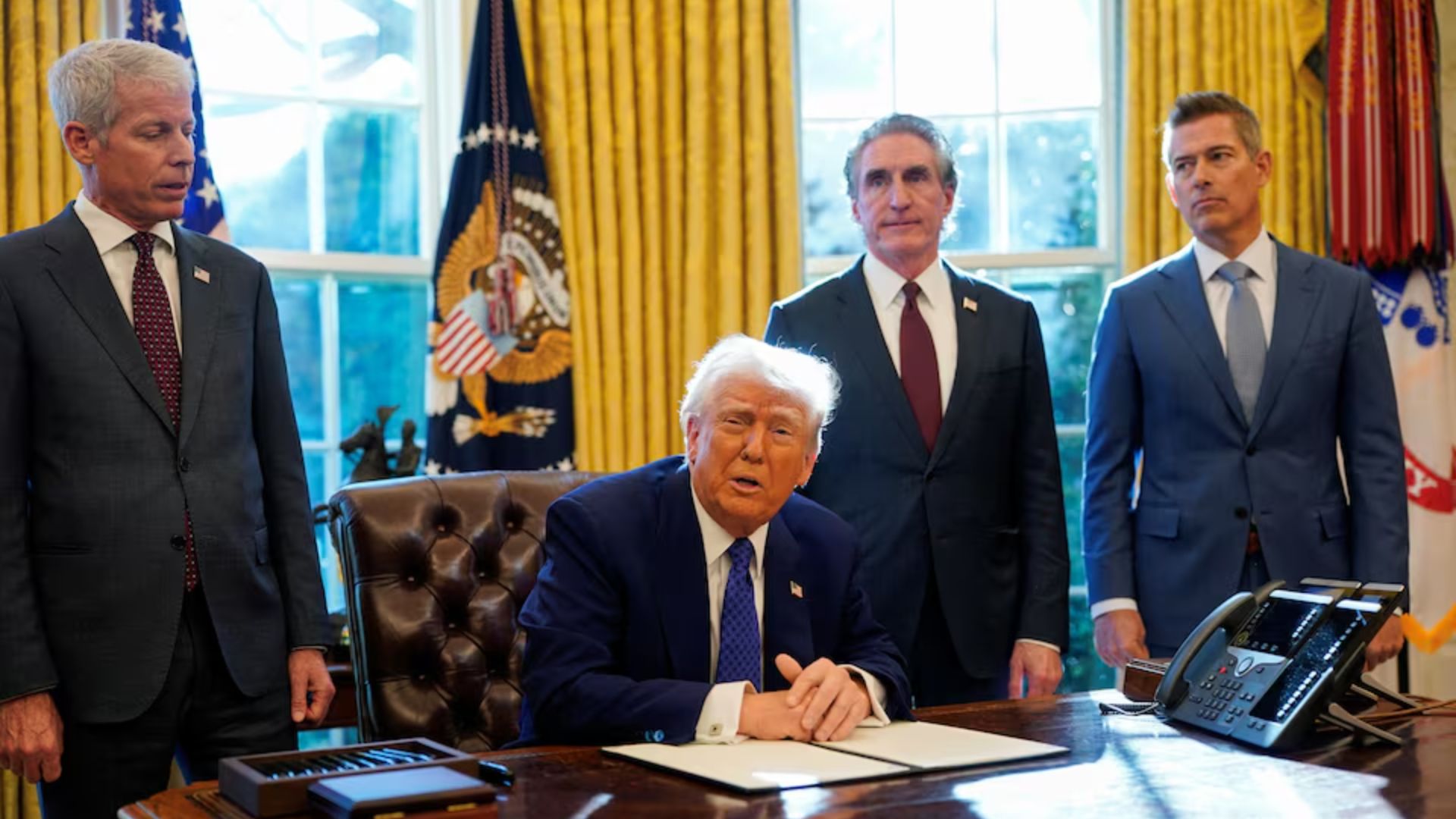Summary
- Early April eyed for auto tariffs
- No details yet provided
- Trade group: Autos meeting USMCA specifications should not face added tariffs
NEW YORK, (Reuters) – President Donald Trump on Friday kept alive his drumbeat of tariff threats, saying levies on automobiles would be coming as soon as April 2, the day after members of his cabinet are due to deliver reports to him outlining options for a range of import duties as he seeks to reshape global trade.
“Maybe around April 2,” Trump said in response to a question about when auto tariffs might be coming, during an executive-order signing session in the Oval Office. “I would have done them on April 1… But we’re going to do it on April 2.”
It was the latest in a litany of trade actions Trump has unveiled since taking office for the second time on January 20.
Since his inauguration, he has imposed a 10% tariff on all imports from China, on top of existing levies; announced and then delayed for a month 25% tariffs on goods from Mexico and non-energy imports from Canada; set a March 12 start date for 25% tariffs on all imported steel and aluminum; and on Thursday directed his economics team to devise plans for reciprocal tariffs on every country that taxes U.S. imports.
It has been a blur of orders that Trump has asserted will level the playing field for American goods abroad and reinvigorate a long-declining U.S. manufacturing base but which have also sown confusion among businesses, irked long-standing U.S. allies and stoked worries among consumers and economists about a renewed upswing in inflation.
Trump offered no other details for his auto tariff intentions before heading to his Florida estate for the weekend. But what he views as unfair treatment of U.S. automotive exports in foreign markets has long been a sore spot for him. The European Union, for instance, collects a 10% tariff on vehicle imports, four times the U.S. passenger car tariff rate of 2.5%. The U.S., though, collects a 25% tariff on highly profitable imported pickup trucks.
“We applaud President Trump’s idea to look at all vehicle imports to the U.S., an important step forward,” Ford Motor Co Chief Executive Jim Farley said on X after Trump’s remarks. “Comprehensive trade policies are imperative to achieving the president’s vision to strengthen the U.S. auto industry.”
Earlier in the week Farley said Trump’s proposed and implemented tariffs have added “a lot of cost and a lot of chaos.”
According to auto data collector Ward’s Intelligence, close to a quarter of new vehicles sold in the U.S. last year were classified as imported, which in their data excludes vehicles built in the U.S., Canada or Mexico. The trade pact for the North American trading partners that Trump revamped in his first term, the US-Canada-Mexico Agreement, or USMCA, lays out extensive rules of origin for the parts included in vehicles built in the three countries. All vehicles determined to have at least 75% of their parts originating from the three countries are not subject to tariffs.
USMCA is up for a scheduled review in 2026, and a number of analysts view Trump’s comments on tariffs on autos and Canadian and Mexican goods as an opening bid to renegotiate a pact he described as the “greatest” trade deal ever.
“We have not seen any details at this time. Ford, GM and Stellantis continue to believe that vehicles and auto parts that meet the USMCA requirements should not be subject to additional tariffs,” said Matt Blunt, president of the American Automotive Policy Council, which represents the interests of Ford, General Motors and Stellantis.
Trump’s directive on Thursday required his top economic advisers to draw up plans to impose like-for-like tariffs on goods from any country that collects an import tax on U.S. goods. His nominee to run the Commerce Department, Howard Lutnick, said he expected those reviews to be completed and submitted to Trump by April 1.
Reporting by Dan Burns; Editing by Daniel Wallis and Rosalba O’Brien











